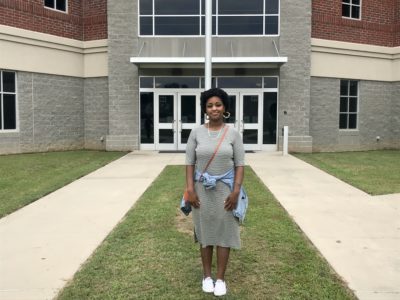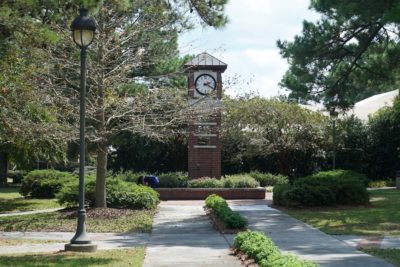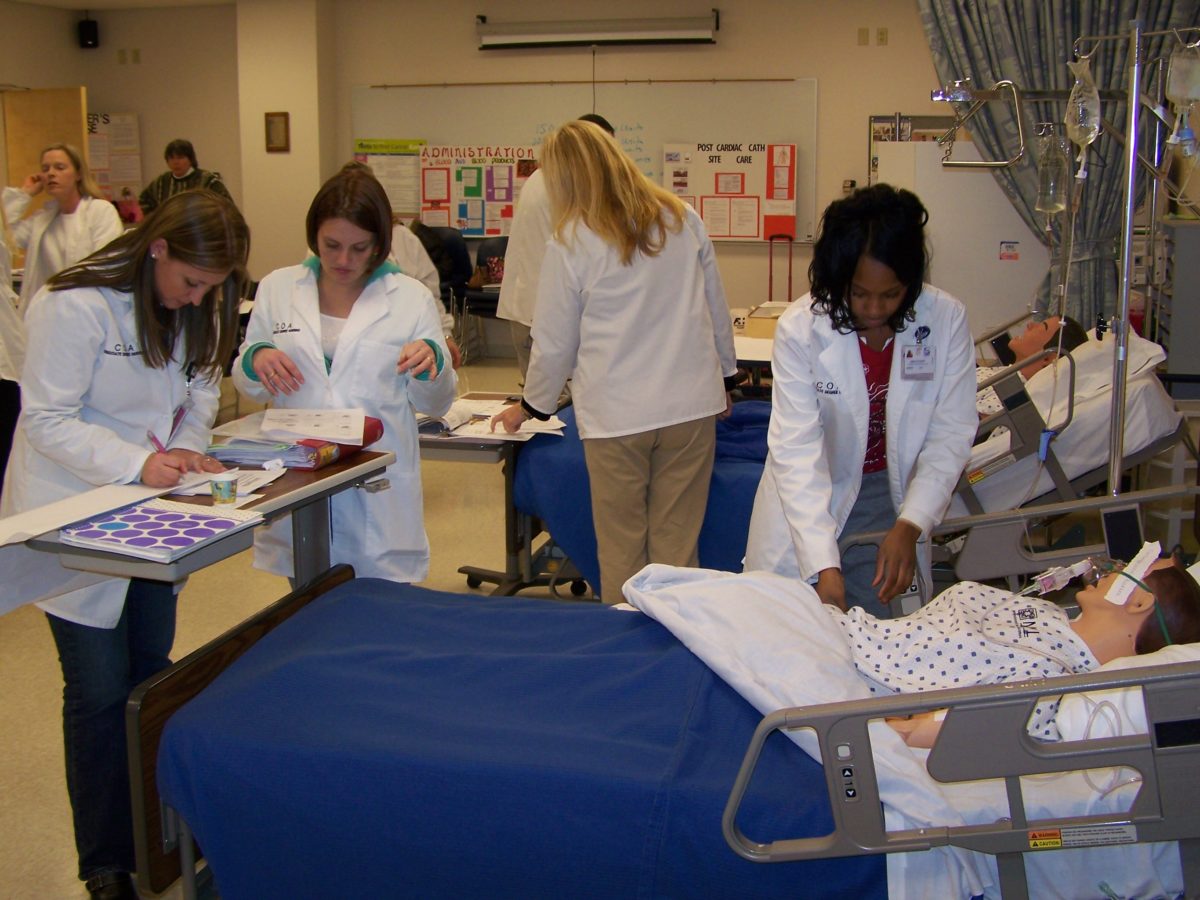
As nursing students are being called upon to assist in North Carolina’s COVID-19 vaccine rollout amidst a nursing shortage, a potential rule change has smaller and rural nurse education programs concerned.
The North Carolina Board of Nursing oversees nurse licensing and approval of nurse education programs, many of which are at the state’s 58 community colleges. A rule increasing education requirements for nursing faculty took effect on Jan. 1. But 10 days later, after hearing concerns, the Board issued a waiver for the duration of 2021.
Prior to the rule change, 50% of a nursing program’s faculty were required to hold a Master in Nursing. The Board changed the rule such that 80% of full-time and 50% of part-time nursing faculty would be required to hold a master’s.
For smaller programs or programs located in rural areas, administrators say the rule change would raise an already high barrier to finding nurse educators.
“This has been an ongoing — I don’t want to say problem — but an ongoing situation with North Carolina community colleges’ nursing programs of getting adequate faculty,” said Robin Harris, dean of health sciences at College of the Albemarle.
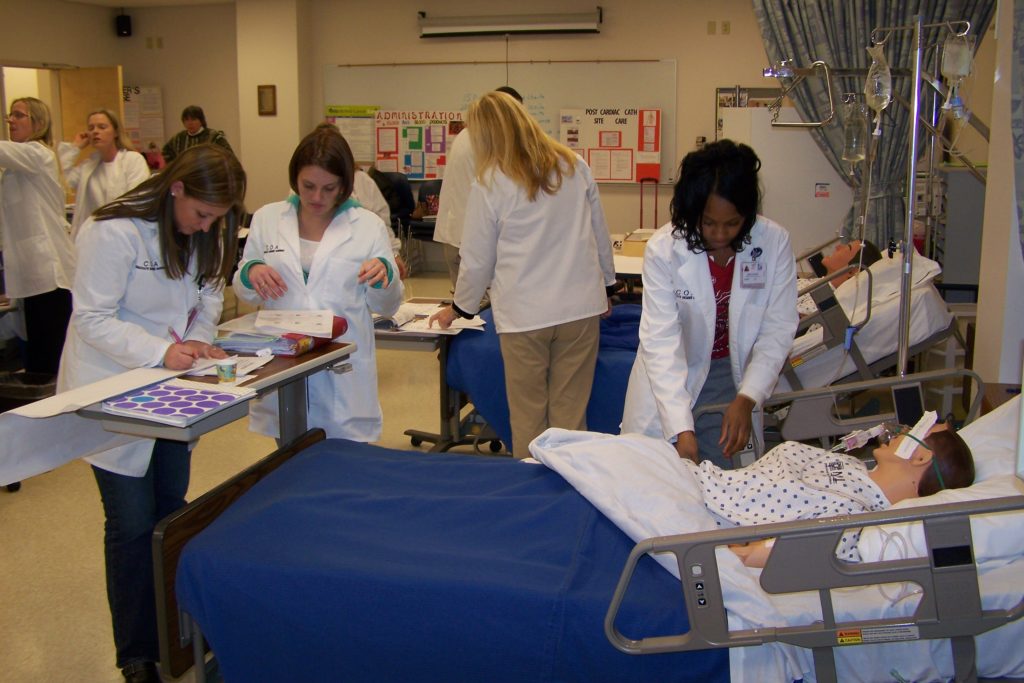
David Shockley, president of Surry Community College, said North Carolina’s community college system produces over half of the nurses in the state. He said the rule change has the potential to exacerbate the current nurse shortage.
“Of course we’re proponents for education. I think everybody should be a lifelong learner, that’s not it,” Shockley said. “But when you put this restriction on, you are hurting communities where it’s already tough to find nurses.”
Shockley said that, for many communities, careers in nursing are major economic drivers.
“Those are our highest paying jobs,” he said. “When you see an A.D.N. (Associate Degree in Nursing) go across that stage, you have really given an individual and a family tremendous socioeconomic mobility and launched them firmly into the upper middle class.”
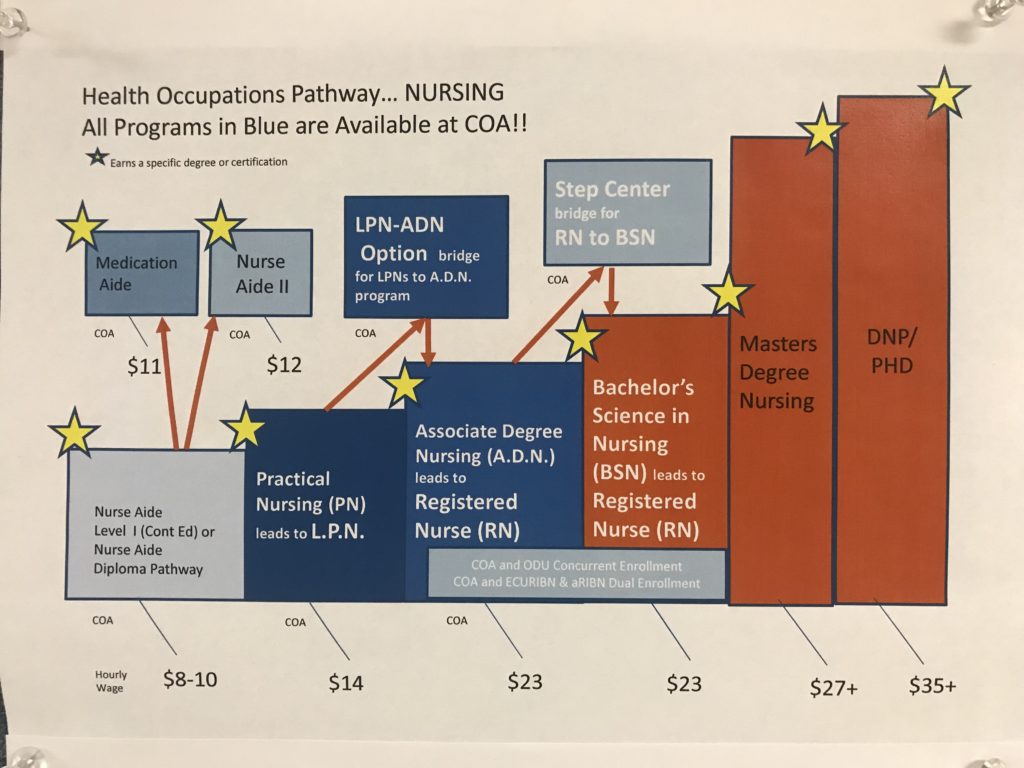
Shockley said Surry Community College has struggled to fill faculty positions that require a Master in Nursing.
“It’s a hardship, especially on the rural areas where your population is smaller and you don’t have that accessibility to the universities,” he said.
The State Board of Nursing issued a waiver for the rule change through December 2021. Crystal Tillman, CEO of the North Carolina Board of Nursing, cited the COVID-19 pandemic as the Board’s reasoning.
“With the pandemic going on, we’re trying to not be a barrier, and we’re trying to get nursing students graduated and get them into the workforce as quickly as possible,” she said.
Sign up for Awake58, our newsletter on all things community college.
Tillman said the rule was put in place to increase the quality of nursing education and to match the expectations of accrediting boards. In addition to issuing the waiver, she said the Board would be reviewing the rule change for after 2021.
“I will tell you that students who graduate from their local community colleges, they tend to stay in the area. So we as the Board, we definitely want to keep the public safe,” she said. “That’s our mission. But we also don’t want to create any unnecessary barriers that are going to affect our number of nurses that we’re putting out in the pipeline, or the workforce.”
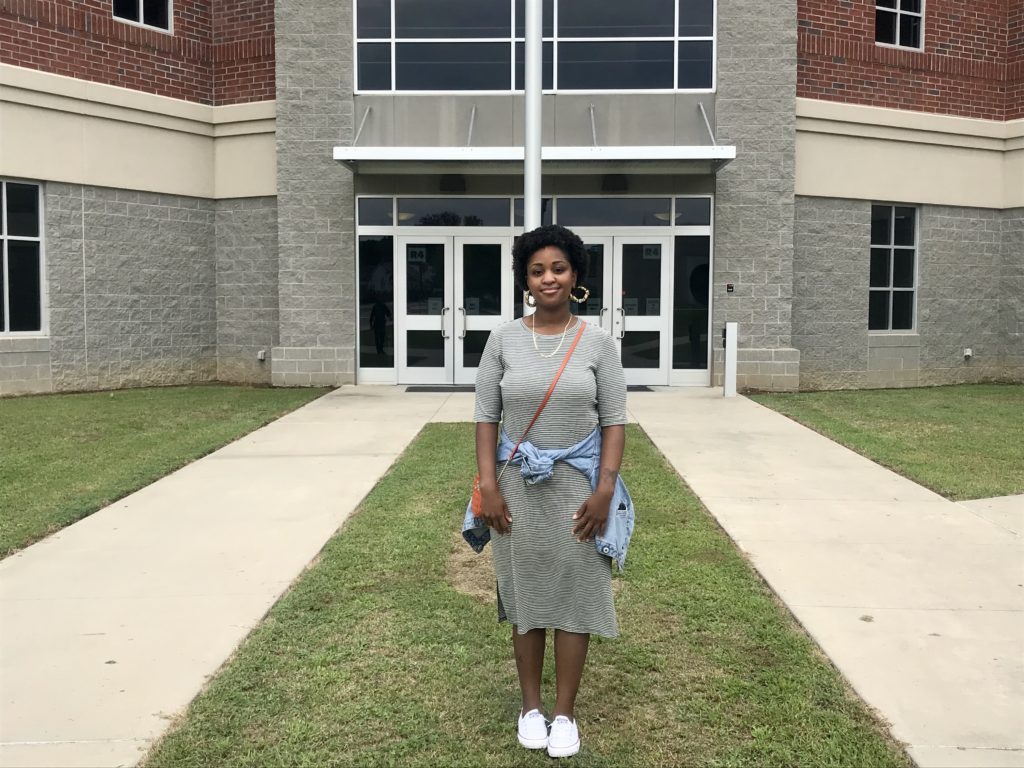
Harris said she was pleased the Board is taking the rule change under consideration.
“Giving the waiver until December of 2021 gives them some time to really take a look at this rule so that we can go through all those steps to get the change, whatever it may be,” she said.
Harris said it was common for her to hire nursing faculty who have a bachelor’s degree in nursing and put them through a master’s program while they teach. But she said the new requirements would make that approach especially difficult for smaller programs.
“If you have a program that is a small school and you have four faculty, that means that all of your faculty must have an M.S.,” Harris continued. “Because the math, you know, 80% of four means all four must be Master’s in Nursing.”
Tillman, who took this path to become a nurse educator herself, said the Board would likely consider allowing exceptions in those cases.
“I started teaching in a nursing program, but I had a B.S.N. to kind of get my feet wet, to say, ‘Hey, is this what I want to do?’” she said. “And when you decide that it is, then at that point you want to go back for your graduate nursing degree. So yes, I think there would be allowances for that.”
Tillman said the Board plans to discuss the rule change at their next full meeting on May 28.
Correction: A previous edition of this post contained a photo of surgical tech students and faculty instead of nursing faculty and students. The photo has been replaced.
Recommended reading
